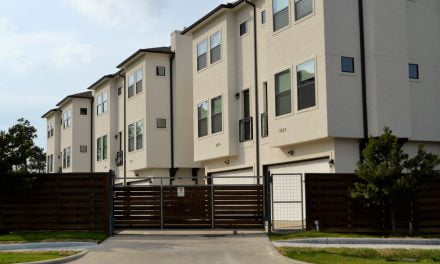Why this article matters: Stay up to date on all the latest legislation influencing the real estate and mortgage industry.
Recall the Homeowner Bill of Rights
The California Homeowner Bill of Rights (HBOR) was signed into law in 2012 at the tail-end of the foreclosure crisis that forced over a million California households out of their homes. The HBOR guarantees qualified homeowners facing foreclosure a meaningful opportunity to obtain a mortgage modification and keep their homes. [Calif. Civil Code §2923.4]
This new law, passed under Senate Bill 1146, builds upon the HBOR, clarifying and underscoring certain protections while letting mortgage servicers off the hook for others.
Previously, mortgage servicers were required to establish a single point of contact during the foreclosure prevention process requested by the homeowner. However, it exempted mortgage holders that foreclosed on 175 or fewer residential properties in the prior year.
Now, it also exempts individuals or entities that make and service seven or fewer purchase-assist mortgages during the calendar year. [Calif. Civil Code §2923.7(g)(1)(B)]
When a homeowner submits a completed application for a mortgage modification on a first lien through the mortgage servicer — at least five business days before the scheduled foreclosure sale — the servicer may not record a notice of default, notice of sale, or conduct a trustee’s sale while the application is pending. [CC §2924.18(a)(1)]
Unlike the single point of contact requirement, the new law clarifies that this pending application requirement does apply to individuals or entities that make and service seven or fewer purchase-assist mortgages during the calendar year. [CC §2924.18(b)(2)]
Further, the trustee is prohibited from taking the next step in the foreclosure process when the modification application is approved, so long as the homeowner remains in compliance with the modification plan. [CC §2924.18(a)(2)]
Related article:
Trustee’s sale clarifications
The new law clarifies when the mortgage or deed of trust is paid in full and a full reconveyance or certificate of discharge is properly recorded, a trustee is not required to record a notice of rescission. [CC §2924c(a)(2)]
It also authorizes the trustee to postpone a foreclosure when an act of force majeure prevents access to the location at the time of sale (i.e. when an unforeseeable event that is outside of the trustee’s control makes completion of the sale impossible or impractical). [CC §§2924g(c)(1)(E); 2924g(f)]
Under the new law, the trustee is authorized to require:
- no-cash bids to be made directly to the trustee, when that requirement is included in the notice of sale; and
- the successful bidder to replace a check or cash equivalent with a new check or cash equivalent made directly payable to the trustee when the trustee deems necessary. [CC §§2924h(c)]
Finally, the new law prohibits a trustee, from receiving any bid from an eligible bidder during the 45 days after a trustee’s sale that is not sent by certified mail with the U.S. Postal Service or by another overnight mail courier service with tracking information that confirms the recipient’s signature and the date and time of receipt and delivery. [CC §§2924m(c)(4)(A)]
This bill was crafted with industry support of the California Mortgage Association and United Trustees Association.














